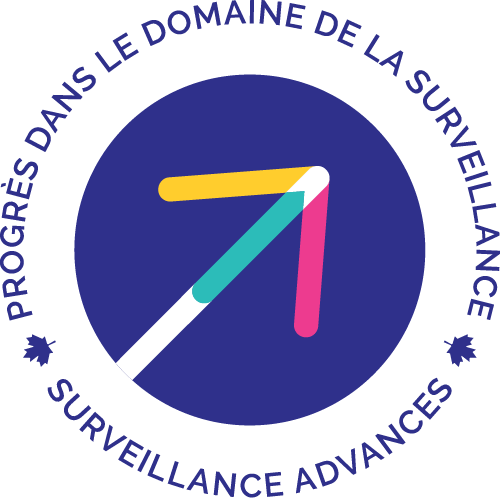
Hosted by
The Public Health Agency of Canada (PHAC)’s Data, Surveillance and Foresight Branch (DSFB) and National Collaborating Centre for Infectious Diseases (NCCID).
Date and time
March 26, 2024
1:00 to 2:00 Eastern Time / 12:00 to 1:00 Central Time
Language
English and French (we encourage questions to be asked in your choice of the official languages).
Format
This seminar will be held on Zoom. Speakers will make their presentations for the first 30, followed by approximately 15 minutes for discussion and questions from attendees. Seminar will be delivered in English and French, and we encourage questions to be asked in your choice of the official languages. Presentation materials in English and French will be distributed through NCCID media channels a few weeks after.
Synopsis
This seminar provides a discussion on the multifaceted landscape of wastewater surveillance in Québec. It offers insights into lessons learned from reviews, evaluations, and genomic analysis of SARS-CoV-2 that highlight the pivotal role of wastewater surveillance has and will continue to have in public health monitoring and disease management.
Introduction
Wastewater surveillance is a type of environmental monitoring which has historically played a crucial role in tracking pathogens transmitted via waterborne or fecal-oral routes. This versatile tool enables the tracking of infectious disease dynamics across different scales, from entire communities down to individual buildings. It encompasses various sources, including sewers, wastewater treatment plants, surface waters, and point sources.
In the context of COVID-19, wastewater surveillance for SARS-CoV-2 has emerged as a valuable source of information. By analyzing wastewater samples collected from sewage systems or treatment plants, researchers can detect and quantify the genetic material of the virus present in the population. This early detection capability allows for prompt responses to outbreaks and a comprehensive understanding of disease transmission dynamics, aiding in better-informed decision-making at the population level. By leveraging this comprehensive tool, public health authorities can implement timely public health interventions, allocate resources effectively, and safeguard both community and environmental health.
Resources
Learning objectives
By the end of this seminar, participants will be able to:
- Understand the current research on wastewater surveillance for monitoring COVID-19
- Gain insight into the role of wastewater surveillance in monitoring pathogens, with an emphasis on tracking infectious diseases such as COVID-19
- Understand the importance of genomic sequencing techniques for analyzing SARS-CoV-2 in wastewater
Moderators
- Jacqueline Roberge-Dao, Senior Policy Analyst, DSFB, PHAC
- Signy Baragar, Project Manager, NCCID
Speakers
- Dr. Caroline Huot, Institut national de santé publique du Québec (INSPQ)
- Christine Jobin, INSPQ
- Dr. Inès Levade, INSPQ
Access Instructions
All instructions for the seminar series will be posted on the Zoom registration page and will be emailed to all registrants prior to the event. Following the event, recordings and slides for each seminar will be posted on this page.
Accreditation statement
Surveillance Advances is a self-approved group learning activity (Section 1) as defined by the Maintenance of Certification Program of the Royal College of Physicians and Surgeons of Canada. Surveillance Advances is also approved by the Council of Professional Experience for professional development hours for members of the Canadian Institute of Public Health Inspectors.

Past Webinars
Surveillance Advances launched in September 2023 with a discussion about the foundational concepts of public health surveillance and the future opportunities that lie ahead. Subsequent seminars featured topics related to health inequalities (seminar 2), data science (seminar 3), maternal and newborn health (seminar 4), and injury surveillance (seminar 5). For a complete list of seminars and to view their recordings, please visit the Surveillance Advances webcasts page.
